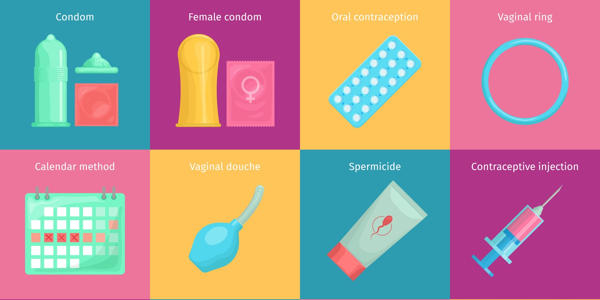A study of women who experienced mental illness as a result of hormonal contraception found that they value their mental health more than a satisfying sex life. Their experiences may influence the method of contraception they use. This is one of four themes identified by researchers in interviews with 24 women who have experienced negative effects from hormonal contraception. The research was published in the European Journal of Contraception and Reproductive Health Care by Linköping University in Sweden.
Agota Malmborg, a gynecologist, frequently sees women who have negative effects on their sexual desire or mental health as a result of hormonal contraception methods such as the pill, patch, or ring. Questions about sexual unintended consequences have previously been investigated, but it has not been determined whether female sexual function is directly linked with the hormones used in contraception, or how advice should be formulated for women who experience unintended consequences.
A study of women who experienced mental ill-health from hormonal contraception indicates they value their mental well-being higher than a satisfactory sex life. Their experiences can influence their choice of contraception. This is one of four themes that researchers have identified in interviews with 24 women who experience negative effects of some hormonal contraception.
Agota Malmborg and her colleagues examined the significance of problems for women and their choice of contraceptive method in the current study, which was recently published in the European Journal of Contraception and Reproductive Health Care. The researchers conducted in-depth interviews with 24 women who had previously reported in a questionnaire that they had less sexual desire when using hormonal contraception. There were four themes identified.
Women who experienced a negative effect on their mood as a result of hormonal contraception described it as a significant experience that outweighed any negative effect on their sexual desire. Women who had experienced a deterioration in their mental health were hesitant to try hormonal contraception once more.
Most of the women said it took time and experience, not just with hormones, but also with the natural cycle of menstruation and its variations, to gain a better understanding of the body’s interactions between hormones, sexual function, and mental state.

Another theme identified by the researchers concerned some women who reported that hormonal contraception had an impact on their sexual function. These women described how their bodies and genital areas did not respond to stimuli like caresses, suggestive actions by another, and thoughts. Despite the fact that the women were ready for sexual activity, their bodies felt inaccessible, which reduced their sexual desire.
“This was a new realization for us: sexual desire does not begin in the head or as a reaction to, say, caresses. It is also necessary that the genital area is in good condition. Some women reported that when ovulation occurred, the genital area swelled and mucous secretions became more fluid, which they perceived as positive for their sexual desire. These women believed that when they used hormone-based contraception, they lost this ability “Agota Malmborg says She works as a gynecologist at Kvinnokliniken Ryhov in Jönköping and recently defended her doctoral thesis at Linköping University.
The study also demonstrated that an advisor, most often a midwife, plays an important role and can have a significant impact on how women experience these effects. An advisor can help a woman gain insight into which method of contraception is best for her and make her choice of method easier. In contrast, less than satisfactory advisory sessions can cause insight to be delayed.
“It is extremely important to follow up whether a woman is satisfied with the method chosen. This is particularly important for young women, who are at the start of their sexual life, and have not yet gained experience of how their own hormones, sexual desire, and mental health can vary,” says Agota Malmborg.
She believes that future research in the field should concentrate on women who have negative side effects from hormonal contraception. Is it possible, for example, to predict which women are more likely to be affected?
“We must continue to investigate which contraception recommendations the healthcare system should make to the relatively small subset of women who experience unwanted side effects from hormonal contraception. This should also serve as a signal to researchers to continue developing new methods of contraception, both with and without hormones, so that a broader range is available. As a result, we hope that more women, and indeed more men, will be able to find a method that works for them “Agota Malmborg says.
















